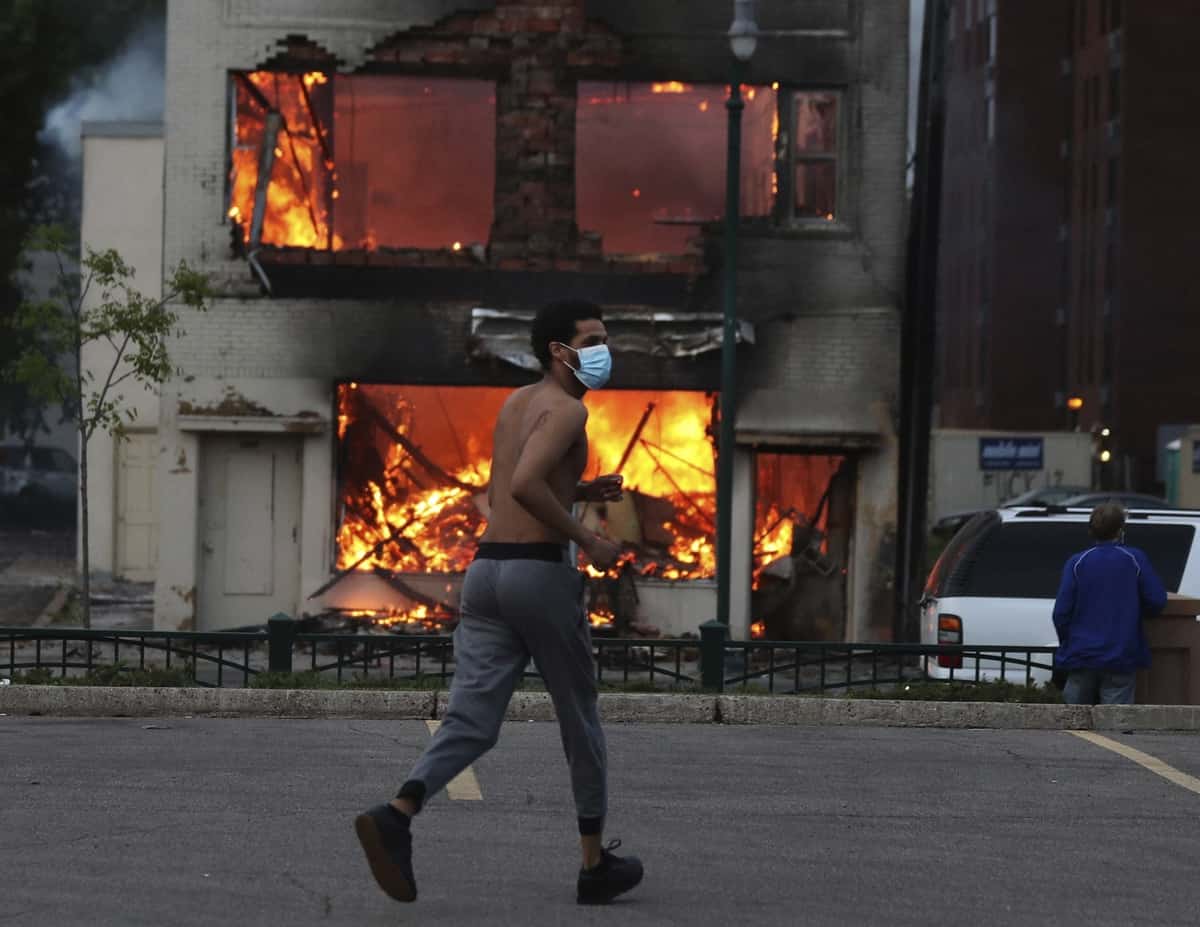CHICAGO: Franchises owned by Arabs and Muslim origin immigrants are among the many businesses that were destroyed during the protests over the killing of George Floyd, an African-American who succumbed to police brutality.
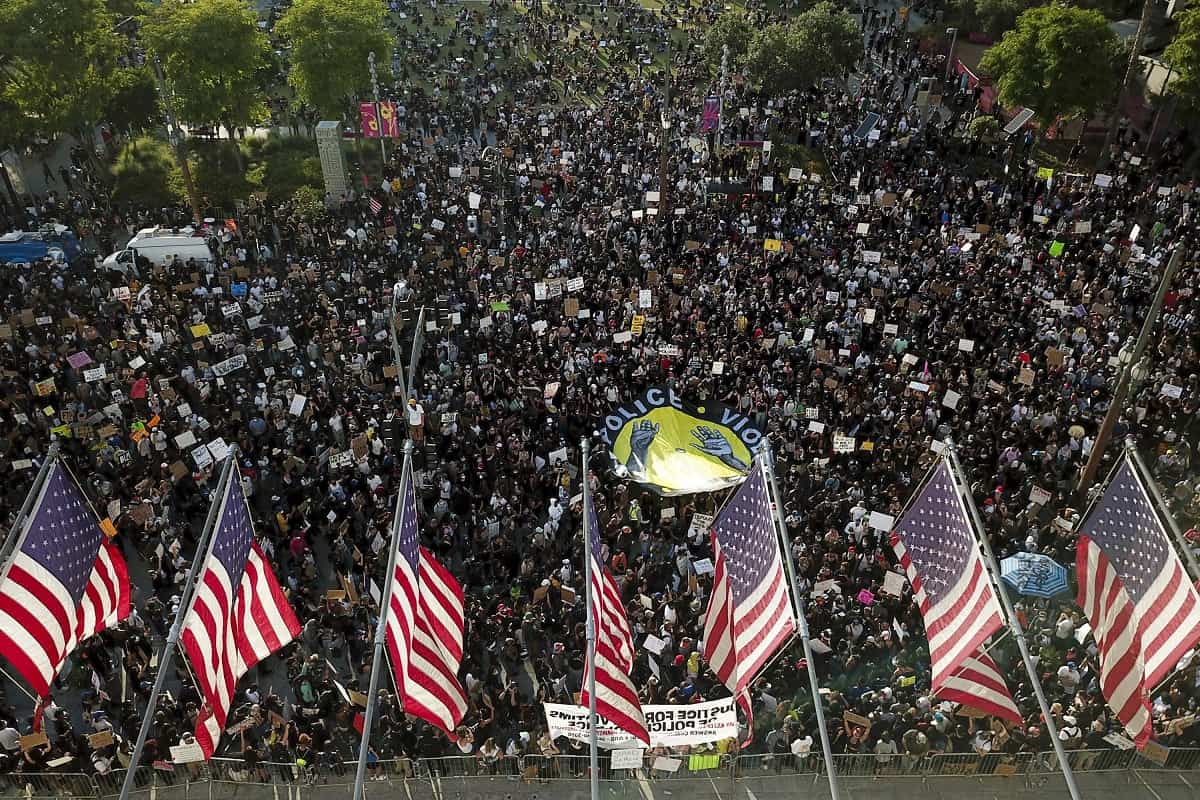
The country’s media has focused almost exclusively on the circumstances of protests over Floyd’s death on May 25, while choosing to ignore an inconvenient truth: the economic setback and mental anguish suffered by hard-working Arab-American and Muslim immigrant communities.
Protesters burned vehicles, smashed windows, defaced buildings and clashed with police as civil unrest erupted in cities across the country. Atlanta, Seattle, Los Angeles, Chicago, Philadelphia, Columbus, Pittsburgh, Denver, Salt Lake City, Nashville and Minneapolis imposed curfews while the governors of Minnesota, Georgia, Ohio, Washington and Kentucky mobilized their states’ National Guards, the Arab News said.
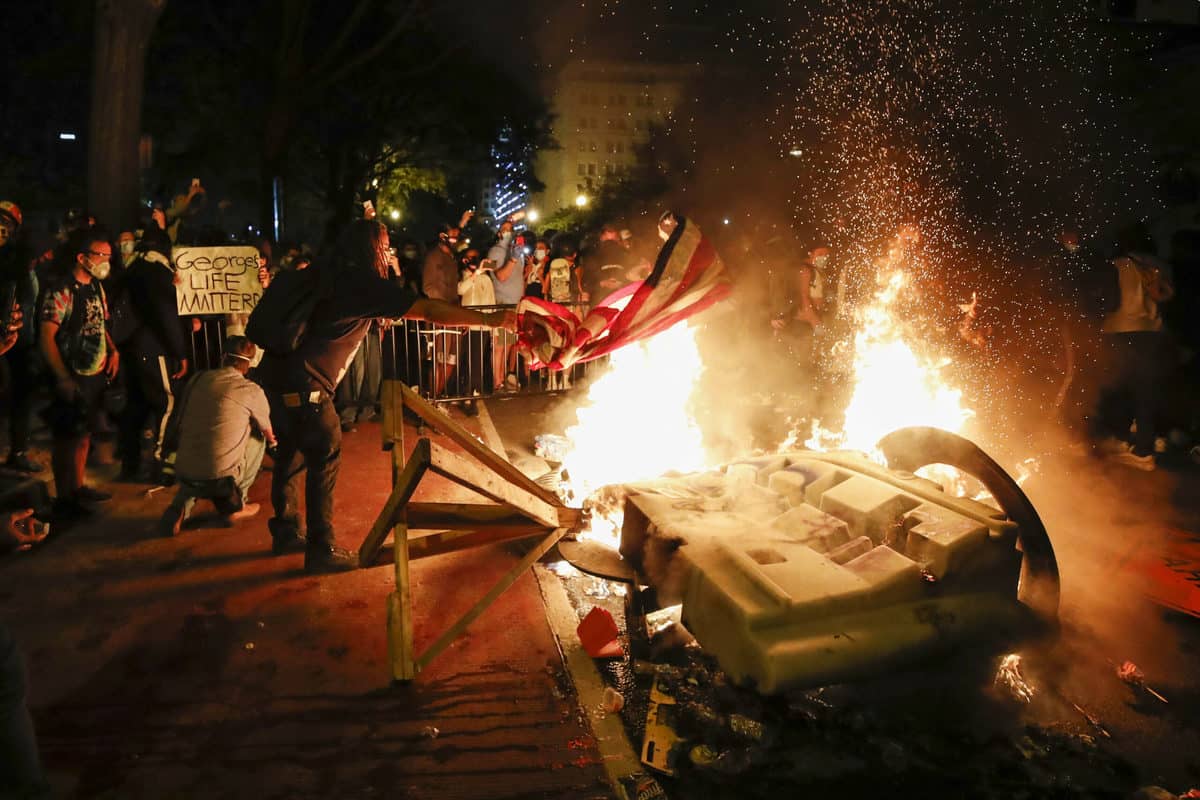
Immigrants face the brunt
Ekhlas Salamy with teary eyes described how she and her sons, Steve and John, watched helplessly from across the main street as their store in Chicago was ransacked by looters.
“I am so frustrated by what happened to our store. My husband bought the business in 1988 and it is located in a mixed community of African Americans and Hispanics,” said Salamy, an immigrant from the Palestinian city of Ramallah.
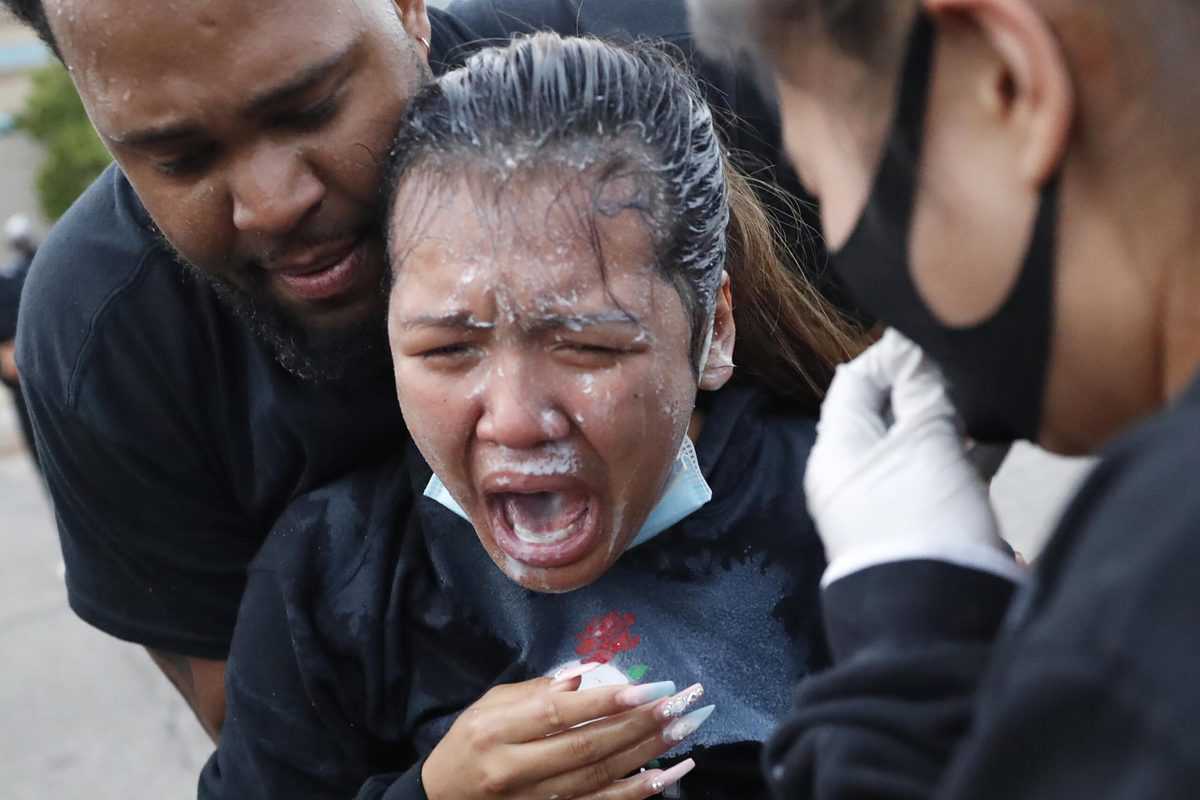
“We have never had any problems before with the African American community. In fact, five of our employees are black and three others are Hispanic.
We never treated them badly and never let them feel that they were any different from us. We have always treated them with respect.
We attended the funerals of our longtime customers and supported their families,” said Salamy.
Salamy along with her two sons took over the family’s Chicago business, Pete & Jack’s Liquor, at 4156 W Division Street after her husband death in August 2018.
“This is our livelihood. All my family has survived off this business,” Salamy told Arab News.
“The looters just destroyed all our hard work. I have tears in my eyes because we never did any harm to anyone. They stole everything and destroyed the entire store.”
Murder case on police officers
Floyd was arrested on Monday when an employee at the Cup Foods convenience store called police to say that a customer later identified as Floyd had tried to use a counterfeit $20 bill to buy cigarettes.
Chauvin, the officer who killed Floyd has been charged with third-degree murder and second-degree manslaughter. Along with him, three other officers have been fired from the Minneapolis Police Department plus charged with aiding and abetting murder.
Floyd’s family denounce protests
Rioting and looting began immediately after news spread of Floyd’s death, despite pleas from the deceased’s family urging protesters to go out and vote rather than turn to violence, Arab News reported.
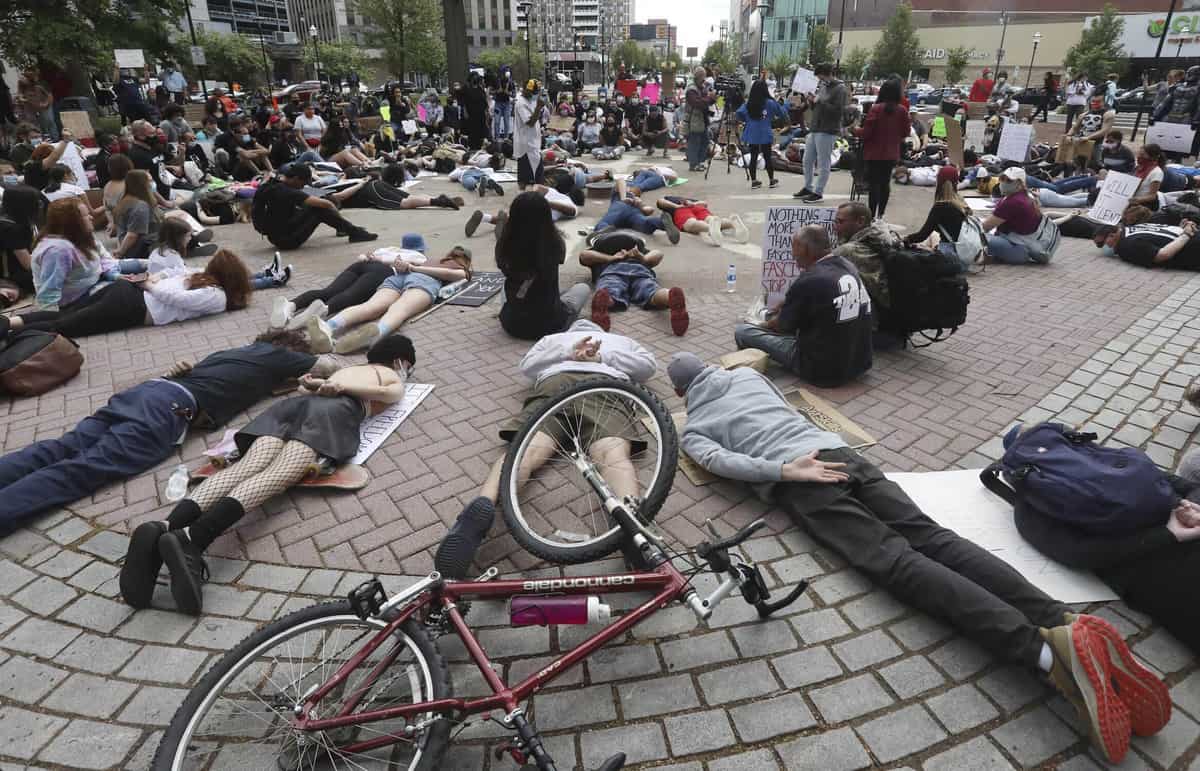
Demanding justice for his brother, Terrence Floyd told a gathering at a memorial in Minneapolis: “The lawlessness sweeping across America would not bring (his) brother back”
Economically depressed communities
Activists associated with the Black Lives Matter movement have not publicly targeted Arab American or Muslim-owned stores. However, many such stores are located in the heart of the African American community, where much of the violence over Floyd’s death has been centered.
Arab American and Muslim immigrants began opening businesses in economically depressed African American communities in the 1950s.
Over the years, many Arab American store owners became victims of violent crime, but that has not discouraged them from opening stores in areas with large minority communities.
Decades-old store
Quick Stop grocery store at 71st and Artesian Street in Marquette Park that was also founded by Arab Americans in 1987 was looted during riots.
“We have always stood with our community, but this was absolutely terrible,” said Naim Matariyeh who worked at the store with his 88-year-old father Jamil and another brother.
“Ours is a family business, owned by two brothers who built this store from absolutely nothing. This is our only source of income, and it was already drastically affected by COVID-19.”
“We are active members of the community. We pray in a mosque nearby. At the beginning of the school year, we donate backpacks, pencils and crayons to the children here,” Matariyeh said.
“Sadly, we have lost a store that we spent many years building up, and now we have no income.”
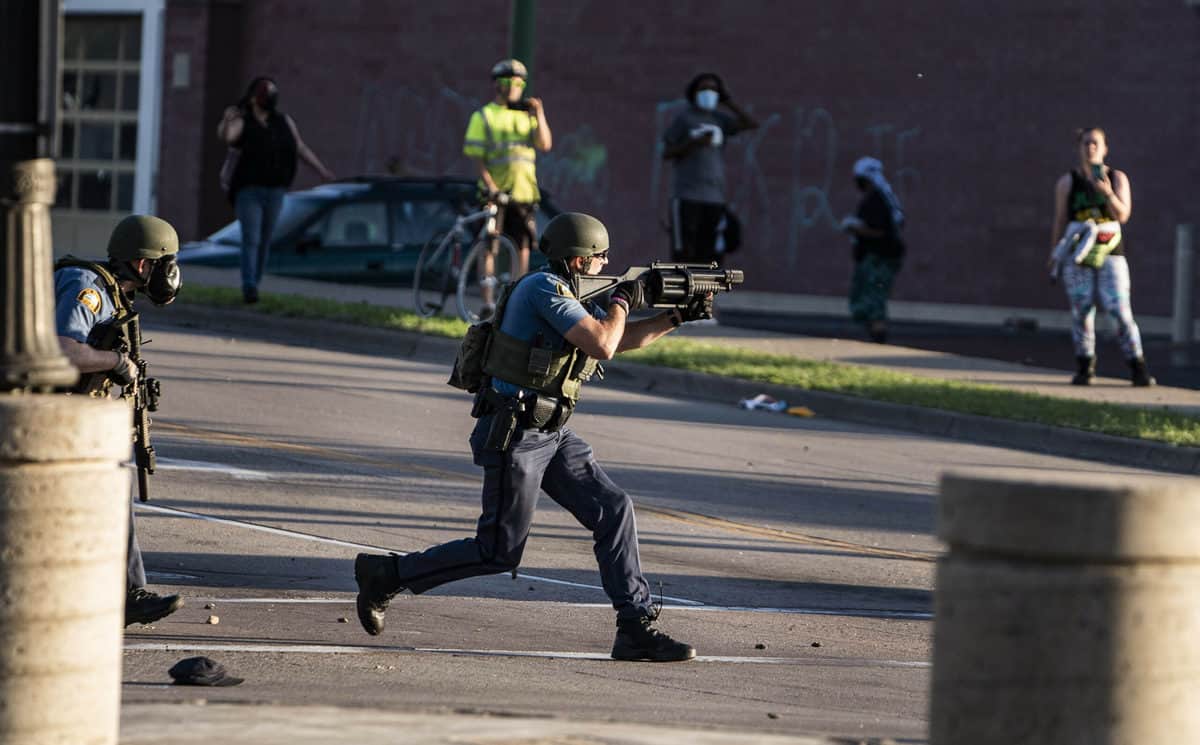
“But that was not the worst of it,” Matariyeh said.
“Our store was looted at first, which hurt us deeply. But my brother and I accepted it, and we were willing to come back the next day to start the cleanup,” Matariyeh said.
“Approximately an hour after we left the store, however, we learned that it was on fire. We returned to the scene, and it devastated us to see what had happened.”
The Matariyeh family has set up a GoFundMe page that has raised more than $11,000 so far to help rebuild their business.
Yemeni store
Another store owned by an American of Yemeni heritage was looted and destroyed. The owner was beaten so badly that he had to be taken to hospital.
“This is going to end up hurting the African American community and discouraging others from reopening their stores in these neighborhoods,” he said.
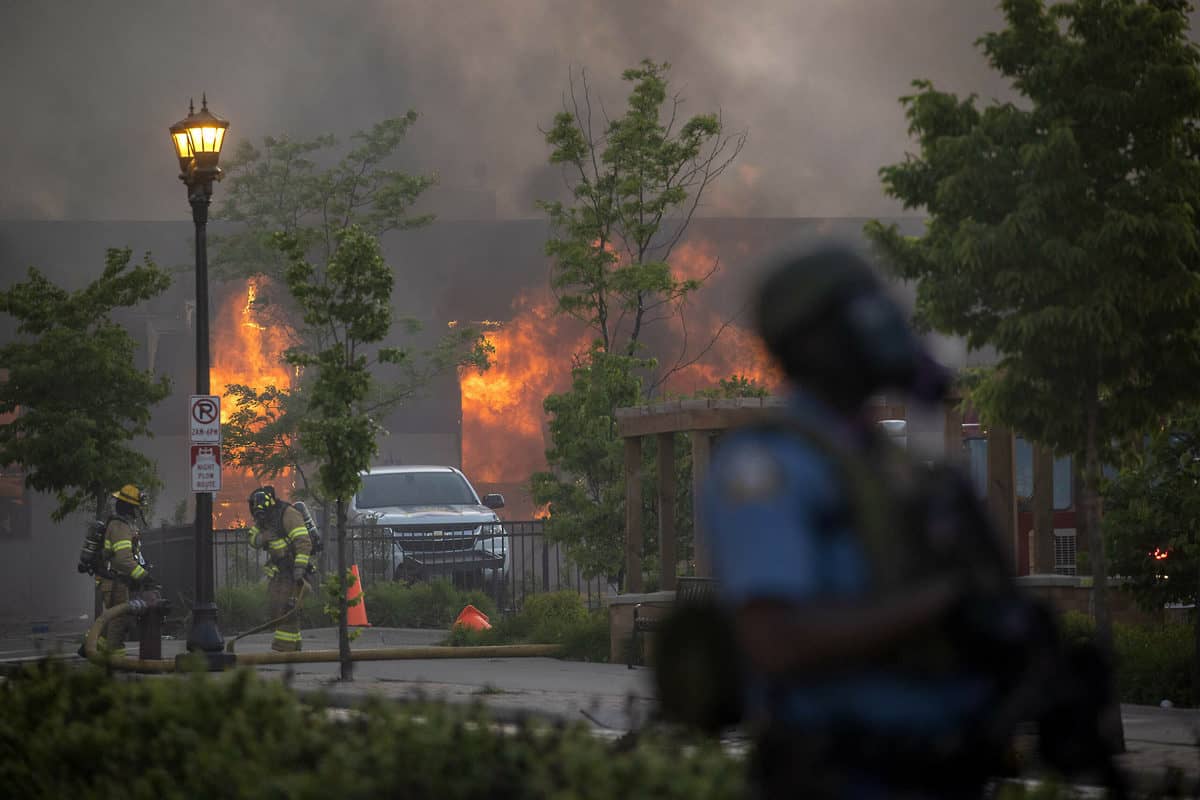
American Arab Chamber of Commerce
Hassan Nijem, president of the American Arab Chamber of Commerce said his organization is actively monitoring the violence against Arab American-owned businesses.
Noting that many Arab stores have been damaged and several completely destroyed, he said: “The real tragedy is that Arab Americans are not the problem in this political and racial war. We are caught in the middle, following the law, being respectful and trying to work with everyone.
“Paradoxically, when the anger reaches a boiling point, we often become the target.”
“Arab Americans have great respect for the concerns of African Americans, Hispanics, Asians and all ethnic and racial minority groups,” Nijem said. “We contribute to the communities where we work.
“I feel sorrow for the plight of the Salamy family and the Matariyeh family.
“They symbolize the hard work Arab American immigrants have strived for only to suffer because of the anger and turmoil in other communities.”

